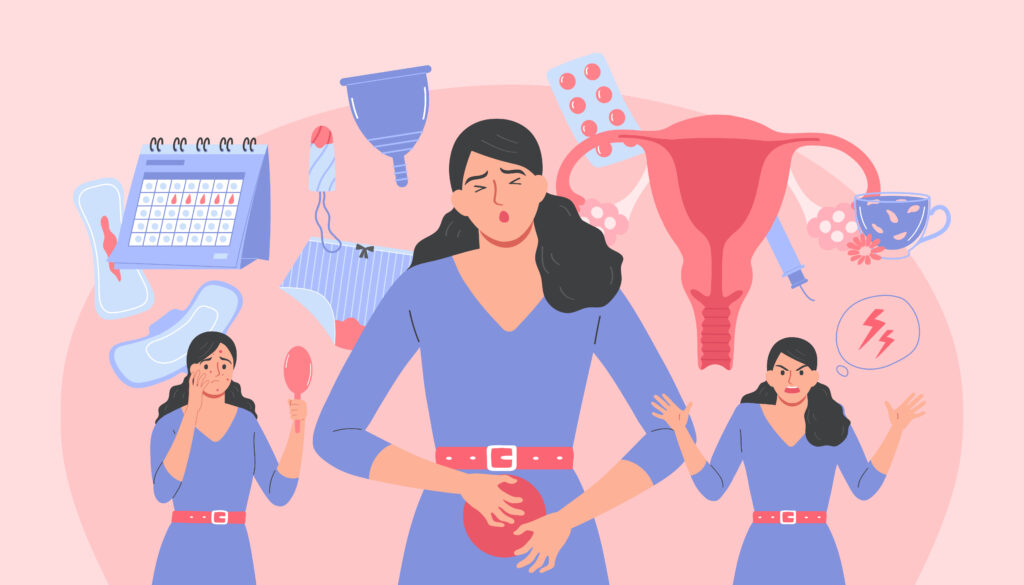PCOS Anxiety and Depression

What is the link between PCOS anxiety and depression? Unfortunately, many young women spend a significant portion of their teenage years and early adulthood experiencing signs and symptoms of anxiety and depression. What they may not realize is that these symptoms could be linked to polycystic ovarian syndrome (PCOS). Explaining the complex link between PCOS, anxiety and depression.
What is PCOS?
Polycystic ovarian syndrome, or PCOS, affects some women as a hormonal disorder resulting from imbalances in hormones. These imbalances can cause problems with periods, acne, and excess hair growth. Women with PCOS may also face challenges becoming pregnant. Furthermore, PCOS can increase the risk of developing type 2 diabetes, high blood pressure, and heart disease. Although there is no cure for PCOS, medical treatments are available to help manage symptoms and reduce the risk of complications.
Why are women with PCOS at an increased risk for anxiety and depression, and what factors contribute to this link?
Women with PCOS have a higher risk of anxiety and depression due to the interaction between hormonal imbalances, physical symptoms, and psychological factors, according to research. An increase in androgens, caused by hormonal imbalances, can raise the risk of mental health disorders. Physical symptoms, such as irregular periods and excess hair growth, can lead to low self-esteem and a negative body image, affecting emotional well-being. Finally, managing the condition and potential difficulties getting pregnant can add stress to the situation, also impacting mental health.
Women with polycystic ovarian syndrome are at a higher risk of developing depression and anxiety compared to those without the condition, according to a study published in the Journal of Affective Disorders. The study also found that the severity of PCOS symptoms was linked to higher rates of depression and anxiety. Elevated levels of androgen hormones, commonly found in PCOS, can also negatively affect a person’s mood and emotional well-being, according to the Journal of Psychosomatic Obstetrics & Gynecology.
According to Dr. Neal Rouzier, an expert in preventive medicine, explains that a common symptom of PCOS is severe premenstrual syndrome (PMS). These symptoms can vary widely but may include bloating, breast tenderness, fatigue, irritability, and mood swings.
You are NOT alone!
PCOS is a common hormonal disorder that affects up to 10% of women of reproductive age. While the symptoms and severity of can vary widely, it is important for to know that there are resources and support available to help manage your condition and improve your overall health and well-being. By working with healthcare providers, making lifestyle changes, and seeking support from others with PCOS, you can take control of your health and improve your quality of life!
The link between PCOS, anxiety, and depression is complex and multifaceted, involving both hormonal imbalances and psychological factors. If you have PCOS and are experiencing symptoms of anxiety or depression, it’s crucial to seek help from your healthcare provider. With the right treatment and support, it is possible to manage these conditions and improve your overall well-being. Learn about the functional medicine approach to PCOS.
It’s important to note that not everyone with PCOS will experience anxiety or depression, and not everyone with anxiety or depression will have PCOS. However, if you are experiencing symptoms of anxiety or depression and have PCOS, it’s essential to talk to your healthcare provider about your concerns.
